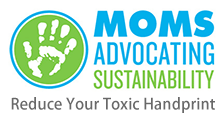A recent Stanford study reviewed the existing research on organic vs. non-organic food. Its conclusions were reported in all the major newspapers. Headlines were generally dismissive of the value of organic food, arguing that organic foods did not appear healthier than non-organic. The lead researchers were quoted as saying that the difference between the two was “not significant”.
A closer inspection of this study reveals the following findings (1):
- Non-organic food pesticide residue levels were below EPA standards
- Organic food had more antioxidants, but not more vitamins
- Organic food had 30% less pesticides
- Organic meat was less likely to be contaminated with bacteria resistant to three or more antibiotics
So are these foods “significantly” different? How did the Stanford researchers decide what is “significant”, and is that the same as what is “significant” to most people? To you?
The authors note that the research they reviewed rarely looked at health outcomes, such as whether kids eating organic food were less likely to get cancer, obesity and diabetes, autoimmune diseases, infertility, ADHD, or learning disabilities. Some studies did show no difference in allergies and eczema.
Pesticides can be carcinogens, hormone disruptors and neurotoxins. Quite a few scientists suspect that they are linked to the present epidemic of various health conditions. Most studies did not look at that. They just measured levels of pesticides, vitamins, anti-oxidants and resistant bacteria in food. Some studies did note that levels of pesticides were higher in the urine of kids who eat non-organic food (1).
The Stanford study also did not comment on genetically modified foods, in part because the companies that make genetically modified seeds do not allow independent research on their products.
While the Stanford researchers refer to the EPA allowable levels of pesticide residues, it’s important to note that according to recent research, these standards are possibly inadequate at least in regard to the health of pregnant women and small children. So the argument that non-organic food is “safe enough” has recently been challenged (2).
We also know that agricultural workers who had higher levels of pesticides in their body during the pregnancy have higher incidence of ADHD in their kids (3). The EPA safe level aimed at consumers of produce doesn’t take that into account.
We are also well aware that pesticides and fertilizers affect the soil and the ecosystem. Does this, in turn, affect our health? Hard to prove, but should we ignore it?
The proper conclusion from the review done by the Stanford scientists ought to be:
- Organic food results in less pesticides in our bodies than non-organic
- Organic food has more antioxidants, which are useful to our health
- Organic food is safer with regard to food poisoning, which kills 3000 people every year, and hospitalizes 128,000 (4).
So, briefly, who are these researchers, and why would they downplay the value of organic? The lead researcher, Dr. Crystal Smith-Spangler is an internist at Stanford. Her previous research showed that pedometers help in increasing exercise. So I’m not surprised that she would tend toward the “individual” understanding of disease. This is how we were taught in medical school. A public health specialist, or even a developmental neurobiologist would see the connection between pesticides, antioxidants, resistant bacteria and health. Doctors usually see individual genetic tendencies as being most important, and individual choices such as smoking, exercise, and properly cooking your food. We were also taught that frank vitamin deficiencies are rare, even thought the CDC estimates that 85% of Americans are deficient in one or more vitamins. Antioxidants were never mentioned in my medical school in the late 1980s.
Can you afford to cut corners on your food? Maybe you can. Maybe you have to. A better question in my mind is how do we make food production safe for all—consumers and producers—and environmentally sustainable as well!?
Dr. Myrto Angela Ashe is a member of the MOMS Advocating Sustainability Advisory Committee. She is a family physician in private practice in Mill Valley, CA. She specializes in stubborn, or persistent medical issues that haven’t resolved with other approaches, or seem to require the ongoing use of medication. She holds both a MD degree and a masters in public health (MPH).
References/links
(1) Ann Int Med 2012 Sep 157(5)
Are Organic Foods Safer or Healthier Than Conventional Alternatives?
Crystal Smith-Spangler, MD, MS and other authors
http://annals.org/article.aspx?articleid=1355685
(2). Int J Environ Res Public Health. 2011 June; 8(6): 2265–2303.
Effect of Endocrine Disruptor Pesticides: A Review
Wissem Mnif and co-authors
http://www.ncbi.nlm.nih.gov/pmc/articles/PMC3138025/
(3) Env. Health Persp. 2010 Dec 118(12)
Organophosphate Pesticide Exposure and Attention in Young Mexican-American Children: The CHAMACOS Study
Amy R. Marks and other authors
http://ehp03.niehs.nih.gov/article/info:doi/10.1289/ehp.1002056
(4) Centers for Disease Control and Prevention
Estimates of Foodborne Illness in the United States (2012)
http://www.cdc.gov/foodborneburden/index.html
